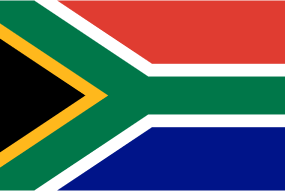Bilateral Relations
Bilateral relations between South Africa and New Zealand were severed in 1984 following the growing movement and pressure for the latter to end ties with the apartheid South Africa. Following the inauguration of the first fully democratic South African government on 10 May 1994, all remaining restrictions against South Africa were removed and relations were normalised. In April 1995, Deputy President Thabo Mbeki undertook an official working visit to Wellington, where he met with New Zealand’s Prime Minister James Bolger. During the visit, Deputy President Mbeki met with the Maori King.
In October 1995, then President Nelson Mandela attended the Commonwealth Heads of Government Meeting (CHOGM) in Auckland. Following the meeting, President Mandela undertook an official visit to Wellington.
On 27 November 1996, Dr Mangosuthu Buthelezi visited New Zealand to attend a Conference on Indigenous People, where after he met with the Prime Minister, the Deputy Prime Minister and the chairman of the Foreign Affairs and Defence Portfolio Committee of parliament.
In 1996 Mr Gregory Fortuin was appointed by then President Mandela as the first Honorary Consul for South Africa in New Zealand. He served in that position until 2009, when South Africa finally deployed a resident High Commissioner to Wellington. Deputy President Kgalema Motlanthe visited New Zealand in response to the invitation that had been extended to then President Jacob Zuma by Prime Minister John Keys at the start of the Rugby World Cup in September 2011. The purpose of the Deputy President’s visit was to boost bilateral political, cultural and economic relations between South Africa and New Zealand.
Close cooperation between the Department of international Relations and Cooperation and their New Zealand counterpart, the Ministry of Foreign Affairs and Trade continues. Relations between the two sides are guided by one structural mechanism of engagement, the Senior Officials Meeting (SOM), which meets biennually to assess and review the status of bilateral relations. South Africa’s Minister of International relations and Cooperation H.E. Dr GNM Pandor received H.E. Minister N Mahuta in South Africa in August 2023 where the two had successful exchanges on matters pertaining to bilateral relations as well as key international developments.
South Africa remains keen to develop and elevate its relations with New Zealand with a view to expanding cooperation not only at the multilateral level on issues such as Climate Change but also at a bilateral level on issues of trade and investment.
Trade Relations
The inaugural and last session of the South Africa-New Zealand Trade and Investment Committee took place on 18 September 2017 in Wellington, New Zealand. Since then, trade between South Africa and New Zealand has generally been smooth without any non-tariff barriers reported to the dtic.
Over the past five years (2021-2025), South Africa-New Zealand bilateral trade has continued to grow. Bilateral trade increased from R3.4 billion in 2021 to R4.1 billion in 2025, representing a 20,6% increase. South African exports to New Zealand increased from R1.27 billion in 2021 to R2.06 billion in 2025, representing an average growth of 12%, whereas imports from New Zealand decreased from R2.19 billion in 2021 to R2.05 billion in 2025. Since 2011, the trade balance has been in favour of New Zealand. The main trade areas included vehicles, foodstuffs, machinery, chemicals and medical equipment. The trade performance indicates that there remains a considerable trade potential between both countries.
Bilateral investments between the two countries remains low. The South African High Commission in Wellington is committed to working closely with the DTIC, Department of Agriculture, Land Reform and Rural Development (DALRRD) together with other relevant stakeholders at the Provincial level such as the KwaZulu Natal Economic Development Agency, Wesgro, Limpopo Economic Development Agency (LEDA), Gauteng Economic Development Agency (GEDA) as well as the Northern Cape, Mpumalanga and Free State Economic Development Agencies in pursuance of trade and investment opportunities with New Zealand.
New Zealanders and Pacific Islanders wishing to invest in South Africa can consult the Invest SA One Stop Shop at http://www.investsa.gov.za/one-stop-shop/ for further information to assist with the procedures. PLease feel free to consult the High Commission as well should you have any queries.
All trade and investment queries may be directed to: Mr G Bradley, First Secretary: Political;
Email: bradleyg@dirco.gov.za
